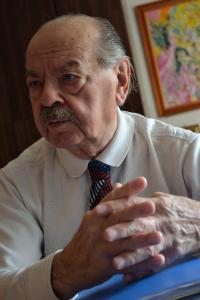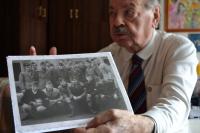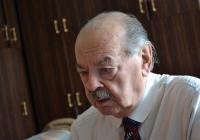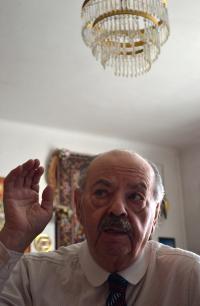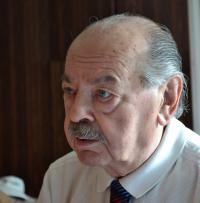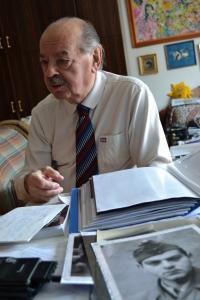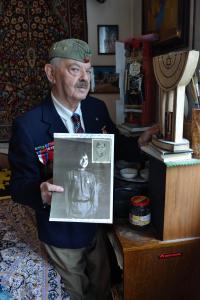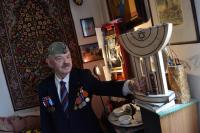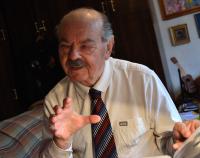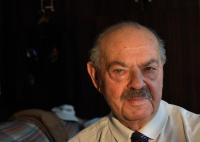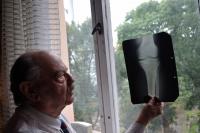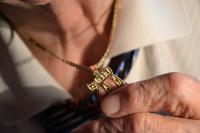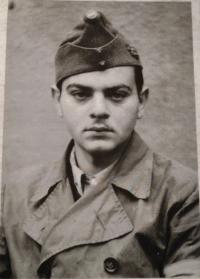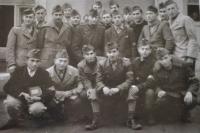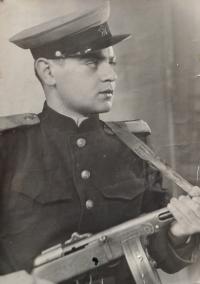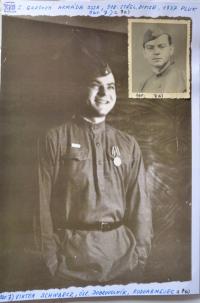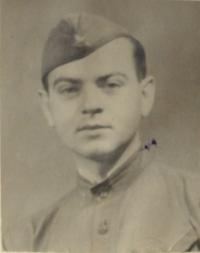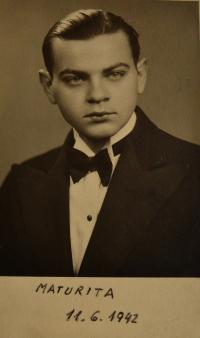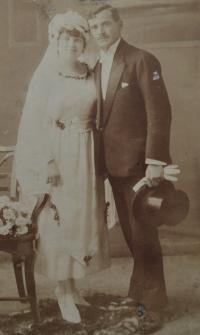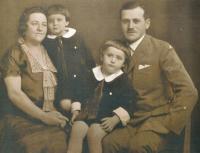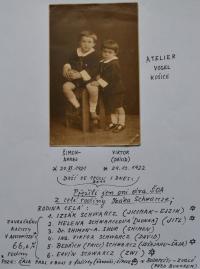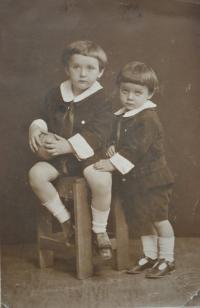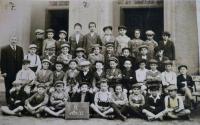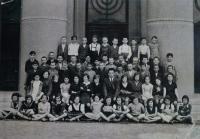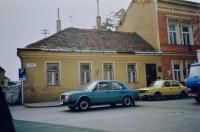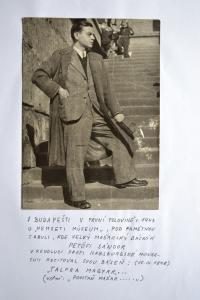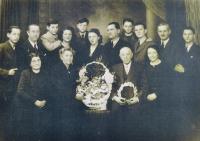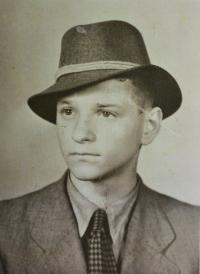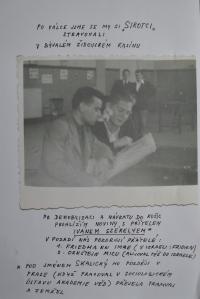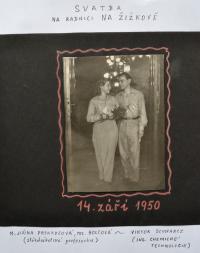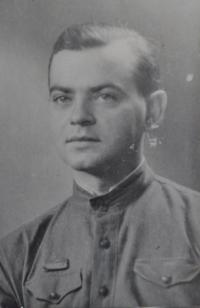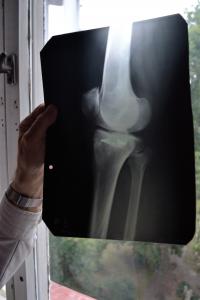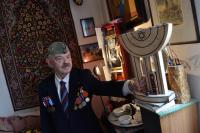Mutual help is the compass of my life

Stáhnout obrázek
Lieutenant in retirement Ing. Viktor Schwarcz was born December 29, 1922 in an orthodox Jewish family in Košice. After three grades of elementary school he went to study the fourth grade at the Jewish school Talmud Torah, and then the fifth at the reformist (neological) Jewish school. Since he was a young boy he has been a member of the Zionist organization Betar. After completing his elementary education he studied grammar school, from which he graduated in 1942, but since he was not permitted to study a university due to his Jewish origin, he went to Budapest, where he worked in non-skilled professions. He was called to participate in pre-military training in the organization Levente, but he eventually decided to withdraw from the training and he escaped back to his native Košice. While in Košice, in October 1943 he received an order to go to a Hungarian labour camp, so-called közérdekü munkaszolgálat, or „munkacamps.“ The workers in „munkacamps“ provided cheap labour, they worked mainly on road repairs, but they also took part in the construction of the so-called Arpad‘s line. At that time they were actually working near the war front in Carpathian Ruthenia, and when their withdrawal and transport to an unknown place was ordered, many of the workers decided to flee. At that time they already knew about mass extermination of the Jews. Viktor Schwarcz and his friend Albert Sas decided to defect to the Red Army. Their escape was successful, and they joined the Red Army in Mukachevo. From November 1, 1944 onwards, both could therefore take part in combat operations. In the Red Army they were assigned to the 1st guards army of the 4th Ukrainian front, 318th division. Viktor Schwarcz served as a submachine gunner. He fought at the Dargov front and in the Odra-Vistula operation. Had it not been for his leg injury he suffered near the town of Żywiec, he would have very probably taken part in the liberation of Auschwitz. He was taken to the hospital in Kamenets Podolsky, where he stayed till the end of the war. None of his closest relatives have survived the holocaust. After the war he graduated from the Institute of Chemical Technology at the Czech Technical University in Prague and then he worked on the construction of aluminum works in Žiar nad Hronom. He also worked at the Ministry of Metallurgy and Mining, at the Ministry of Industry, and as the head of technical development in the Kovohutě Praha company. He still had to suffer repression under the communist regime: once for his Jewish origin, and secondly for his disagreement with the entry of the Warsaw Pact armies to Czechoslovakia. After 1968 he began working in the company Kovošrot Praha. He lived in Prague and he served as a cantor in the Jewish Liberal Union. He died on November 20, 2019.
